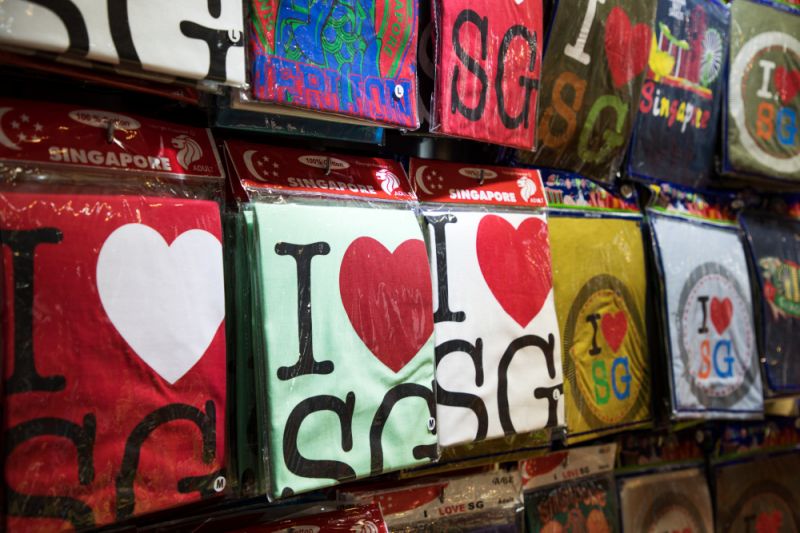

(Bloomberg) — An unexpected contraction in Singapore’s economy and a slump in China’s exports sent a warning shot to the world economy as simmering trade tensions wilt business confidence and activity.
Gross domestic product in export-reliant Singapore shrank an annualized 3.4% in the second quarter from the previous three months, the biggest decline since 2012. China trade figures showed exports fell 1.3% in June from a year ago and imports shrank a more-than-expected 7.3%.
Like South Korea’s economy — which already contracted in the first quarter — Singapore is often held up as a bellwether for global demand given its heavy reliance on foreign trade. China’s quarterly GDP numbers on Monday are expected to show a clear weakening in the economy.
“Singapore is the canary in the coal mine, being very open and sensitive to trade,” said Chua Hak Bin, an economist at Maybank Kim Eng Research Pte in Singapore. The data “points to the risk of a deepening slowdown for the rest of Asia.”
Across Asia and Europe, factory activity shrank in June while the U.S. showed only a meager economic expansion. Asia is the world’s growth engine and contributes more than 60% of global GDP, according to the International Monetary Fund.
Singapore’s complicated integration in regional and global supply chains makes it vulnerable to a slowdown in world growth and tariff wars. Exports — which amount to 176% of GDP — have already taken a big hit over the past few months, with shipments plunging in May by the most since early 2013.
“I thought the numbers would be bad, but this is ugly,” Chua said. “The whiff of a technical recession is real. We thought it might be shallow, but the risk now is that it might be deeper.”
Singapore isn’t expecting a full-year recession yet but the government is “monitoring the situation closely,” Finance Minister Heng Swee Keat said in a Facebook post. The government has said it will likely revise its growth forecast range of 1.5%-2.5% for this year.
The Singapore dollar fell as much as 0.1% to 1.3588 against the U.S. dollar after the data.
A global slowdown and the U.S.-China trade tensions are rippling across the region. A restart to U.S.-China trade negotiations has done little to convince economists that the global economy can recover. Morgan Stanley analysts last month cut both their 2019 and 2020 growth forecasts by 20 basis points each, to 3% and 3.2%.
“With a resolution of the U.S.-China trade conflict and a rebound in the global tech cycle both still elusive, the downside risks to growth in the region are mounting,” said Krystal Tan, an economist at Australia & New Zealand Banking Group Ltd. in Singapore.
Aside from trade tensions, a cooling technology boom is weighing on the outlook of electronics manufacturers like Singapore. About 40% of the city state’s exports are integrated circuits alone, according to Tuuli McCully, head of Asia-Pacific economics at Scotiabank in Singapore.
“The downturn in the global semiconductor sector is reflected in Singapore more than in most countries in the region,” McCully said.
What Bloomberg Economists Say
“As weak as Singapore’s standstill in 2Q GDP was, 2H will probably be much worse without a rapprochement in U.S.-China trade relations. Our forecast for a 0.2% year-on-year contraction in 2019 remains on course.”
— Tamara Henderson, Asean economist
Weaker growth may prompt Asian central banks to step up policy action to bolster growth. Of the 16 economists surveyed by Bloomberg, half expect the Bank of Korea to lower its benchmark interest rate by 25 basis points next week. The Monetary Authority of Singapore, which uses the exchange rate as its main tool, could also ease in October after leaving policy settings unchanged in April.
(Updates with China data in second paragraph.)
–With assistance from Tomoko Sato, Ailing Tan, Ruth Carson, Myungshin Cho, Chester Yung, Michelle Jamrisko and Joyce Koh.
To contact the reporter on this story: Enda Curran in Hong Kong at [email protected]
To contact the editors responsible for this story: Nasreen Seria at [email protected], Paul Jackson
<p class="canvas-atom canvas-text Mb(1.0em) Mb(0)–sm Mt(0.8em)–sm" type="text" content="For more articles like this, please visit us at bloomberg.com” data-reactid=”43″>For more articles like this, please visit us at bloomberg.com
©2019 Bloomberg L.P.












